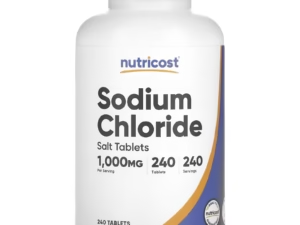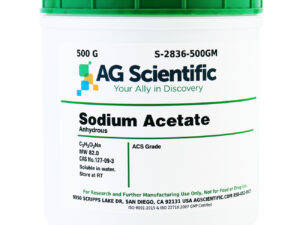Description
Potassium Chloride: More Than Just a Salt Substitute
Potassium chloride (KCl) – a simple chemical compound made of potassium and chlorine – is a vital substance with applications spanning across medicine, agriculture, and even food production. Often appearing as a white, crystalline powder, KCl plays a critical role in maintaining life itself, yet its versatility extends far beyond its essential biological function.
The Biological Imperative: Importance in Health
Within the human body, potassium is a critical electrolyte, working alongside sodium and chloride to regulate fluid balance, nerve impulses, and muscle contractions. This includes the all-important heartbeat. Deficiencies in potassium, known as hypokalemia, can lead to muscle weakness, fatigue, irregular heartbeats, and in severe cases, even paralysis.
This makes potassium chloride crucial in treating hypokalemia, often administered intravenously or orally. It’s also used in some cases, under strict medical supervision, to control heart rhythm abnormalities. However, it’s crucial to remember that improper use of potassium chloride can be dangerous, potentially leading to hyperkalemia (excess potassium) which can also be life-threatening. Therefore, its administration should always be guided by healthcare professionals.
Beyond treating deficiencies, potassium chloride is also used in dialysis solutions to help maintain electrolyte balance in patients with kidney failure.
Feeding the World: Potassium Chloride in Agriculture
Beyond human health, potassium is equally vital for plant growth. It plays a crucial role in:
- Water regulation: Helping plants manage water uptake and loss.
- Nutrient transport: Facilitating the movement of essential nutrients throughout the plant.
- Enzyme activation: Supporting various metabolic processes.
- Disease resistance: Enhancing a plant’s ability to fight off infections.
This is where potassium chloride comes in. As a readily available and relatively affordable source of potassium, it’s a key ingredient in fertilizers, contributing to higher crop yields and healthier plants. It’s particularly important in areas where soil is naturally deficient in potassium. Its use in agriculture contributes significantly to global food security.
A Dash of Potassium Chloride: Food Industry Applications
While not as common as sodium chloride (table salt), potassium chloride also finds its way into the food industry. Its primary use is as a salt substitute, helping to reduce sodium intake while providing a salty taste. This is particularly relevant for individuals with hypertension or those looking to lower their sodium consumption.
However, it’s important to note that potassium chloride doesn’t always replicate the taste of sodium chloride perfectly. It can sometimes impart a slightly metallic or bitter taste, especially at higher concentrations. This is why it’s often used in combination with other flavor enhancers to achieve a palatable result.
Safety and Considerations
While potassium chloride is generally safe when used appropriately, it’s essential to be aware of potential risks. As mentioned earlier, both deficiencies and excesses can be harmful. When used in food, it’s essential to follow recommended guidelines and consider individual sensitivities.
Beyond the Basics
From maintaining a healthy heartbeat to boosting crop yields, potassium chloride plays a significant role in our lives. While often overlooked, this simple chemical compound underscores the importance of essential minerals and their impact on both human health and global food production. Its versatile applications and critical functions ensure its continued importance in medicine, agriculture, and potentially, in the future of food technology.















Reviews
There are no reviews yet.